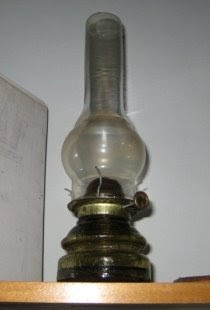 almost unavoidable and keeping body odor under control is a constant struggle. But even the head is not exempt. Apparently many young women have developed ear problems from wearing head coverings all the time. With no air circulation, the heat and humidity make it easy for the ear canal to get infected with fungus, the itching causes scratching which in turn leads to outer ear canal infections with purulent drainage. Many struggle often with smelly drainage from their ears because of this. (Usually the smelly ear drainage is only found in young kids with immature ear canals who play in water a lot and have chronically wet ears but apparently is now common also in pious women.) Another problem is their hair, Many complain that their hair is hard to manage, falls out and they have a lot of trouble with an itchy scalp. This too is related to high humidity making chronically damp skin a haven for fungus and bacteria. But unmanageable hair also provides a motivation to continue covering it up.
almost unavoidable and keeping body odor under control is a constant struggle. But even the head is not exempt. Apparently many young women have developed ear problems from wearing head coverings all the time. With no air circulation, the heat and humidity make it easy for the ear canal to get infected with fungus, the itching causes scratching which in turn leads to outer ear canal infections with purulent drainage. Many struggle often with smelly drainage from their ears because of this. (Usually the smelly ear drainage is only found in young kids with immature ear canals who play in water a lot and have chronically wet ears but apparently is now common also in pious women.) Another problem is their hair, Many complain that their hair is hard to manage, falls out and they have a lot of trouble with an itchy scalp. This too is related to high humidity making chronically damp skin a haven for fungus and bacteria. But unmanageable hair also provides a motivation to continue covering it up.Their grandmothers wore loose see-through head coverings for religious functions only. They wore cotton sarongs and open necked blouses. But the push of modern piety (and fashion, I mght add) is that girls tend to wear chic pants but their head and neck must be covered tightly with heavy opague material, so that only the face itself can be seen and they are being encouraged to wear it all the time not just for religious functions. Nowdays women are out and about more at school and work and don’t have long periods at home where they can take off the gear and give their skin a break.
This is likely the reason that when you go to government offices you will see the pious female civil servants move so languidly. Government civil service uniforms are made from a heavy synthetic gabardine and pious women will wear long skirts and long-sleeved jackets made of that stuff in addition to the occlusive head coverings. Most work in unairconditioned offices. To survive an entire shift it makes sense that you would want to move slowly and avoid sweating as much as possible.
Attention investors: light, cool, opague fabrics which allow air circulation and wick away moisture please! Meanwhile, invest in the powder and skin, ear, and hair medication industries.





